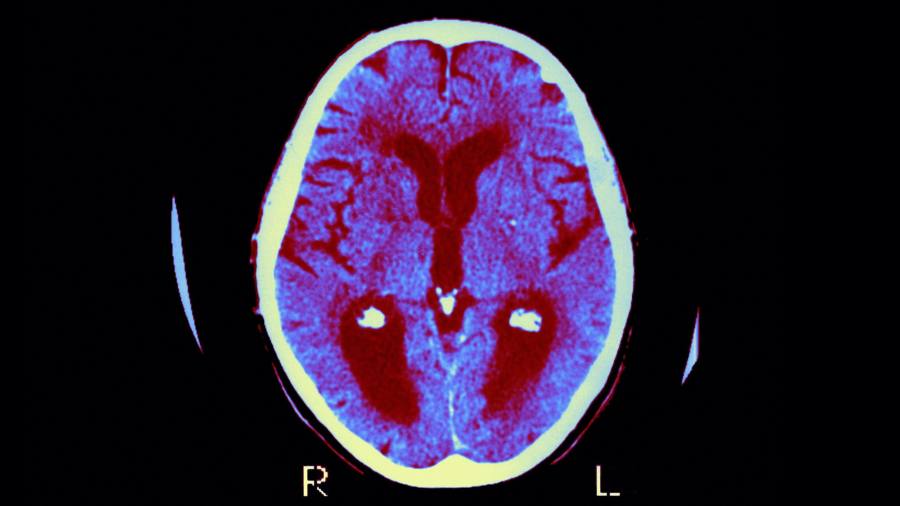
Two late-stage Alzheimer’s treatment studies conducted by pharma group Roche have failed, adding to a long list of disappointments in the field.
The Swiss drugmaker said on Monday that two phase 3 trials of its antibody drug gantenerumab did not slow the decline in people with early stage Alzheimer’s disease, with both failing to meet their “primary endpoint”, or most important research objective.
The experimental drug targeted beta amyloid, the protein that clumps together into plaques in the brains of Alzheimer’s disease patients. The two studies showed the level of plaque clearance was lower than expected, Roche said. Switzerland-listed shares in Roche fell on the news, losing more than 4 per cent after the market opened.
The beta amyloid hypothesis — that by targeting the protein, Alzheimer’s can be slowed down or stopped — has been a big source of controversy and a large number of studies testing it have failed. Yet hopes had been raised by positive results published in September for a drug co-developed by pharma groups Biogen and Eisai, which slowed the rate at which the disease progresses.
Alzheimer’s treatment research has proved stubbornly fruitless, with no new molecules licensed in nearly two decades. A Biogen drug called aducanumab was the first drug to be approved by US regulators last year, though its benefits appear limited and US insurers refuse to pay for it.
The Roche setback adds to the list of challenges facing chief executive-designate Thomas Schinecker when he takes over next year. Schinecker is currently the company’s head of diagnostics, a big source of revenue for the drugmaker. The company’s current chief executive, Severin Schwan, has moved to broaden Roche’s focus from its traditional specialism of cancer medicine.
Roche said it remained committed to research in Alzheimer’s disease. “The company is continuing to develop and deliver tests to enable early and accurate Alzheimer’s diagnosis and has a pipeline of investigational medicines for different targets, types and stages of the disease,” it said.
More than 55mn people live with dementia worldwide, according to the World Health Organization, with Alzheimer’s thought to be the most common form, accounting for 60 to 70 per cent of cases.